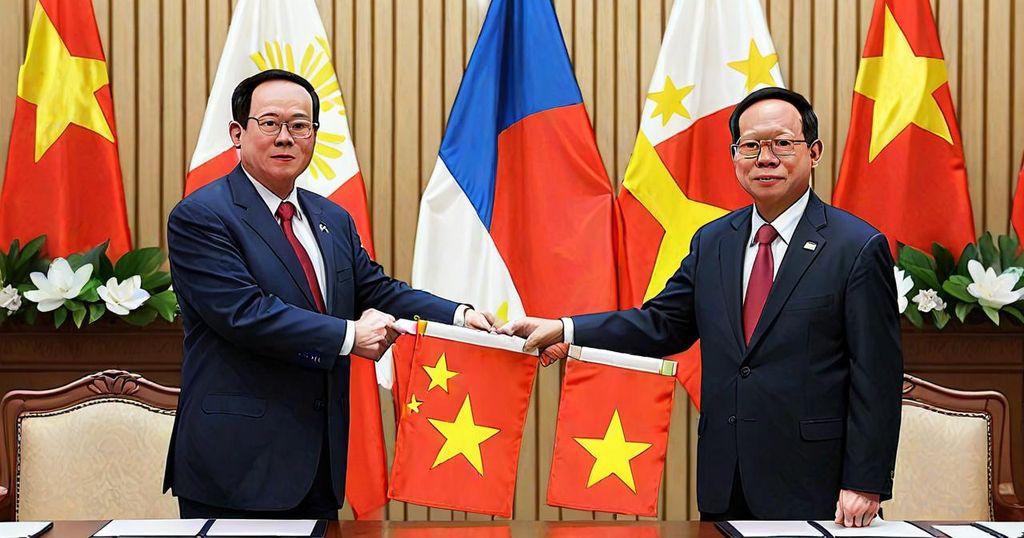The government of the Philippines has expressed its willingness to engage in discussions with Vietnam following the latter’s call for consultations regarding the Philippines’ submission on an extended continental shelf claim in the South China Sea. In an official statement, the Philippine Department of Foreign Affairs conveyed its readiness to initiate talks with Vietnam, with the objective of reaching a mutually beneficial resolution to the South China Sea disputes in accordance with international law, particularly the U.N. Convention on the Law of the Sea (UNCLOS).
Additionally, the Philippines has welcomed Vietnam’s recognition of the submission, which was filed on June 14 with the U.N. Commission on the Limits of the Continental Shelf (CLCS) to assert the Philippines’ entitlement to an extended continental shelf in the West Palawan region of the South China Sea. This proactive stance by the Philippines reflects its commitment to upholding the principles of international law and seeking peaceful resolutions to maritime disputes.
In response to Manila’s submission, Vietnam emphasized that while coastal states have the right to determine their outer continental shelf boundaries under UNCLOS, they must do so in a manner that respects the legitimate rights and interests of other relevant coastal nations with opposite or adjacent coasts. A representative of Vietnam expressed the country’s readiness to engage in discussions with the Philippines, with the aim of achieving a mutually beneficial solution for both parties.
On the other hand, China has rejected the Philippine submission, asserting that it encroaches upon China’s sovereign rights and jurisdiction and violates international law. China maintains its “historic rights” over a significant portion of the South China Sea, although this claim was refuted by an arbitral tribunal under UNCLOS in 2016. Notably, the Philippine submission aligns with the tribunal ruling and has not designated China as a party for negotiations on the continental shelf.
Furthermore, the extended continental shelf constitutes the seabed area that extends up to 350 nautical miles (648 km) from the shore of a coastal state, with the state enjoying exclusive rights to explore and exploit the natural resources within this zone. The complexity of overlapping submissions by the Philippines, Vietnam, and Malaysia adds another layer of intricacy to the situation. Vietnam and Malaysia had a joint submission in 2009, against which the Philippines protested. Consequently, a resolution necessitates mutually agreeable solutions derived through dialogue and diplomatic negotiation.
Nguyen Hong Thao, a professor of international law at the Diplomatic Academy of Vietnam, highlighted the importance of discussions between relevant countries to address the delimitation of maritime boundaries. Expressing the need for solidarity and cooperation between Vietnam and the Philippines, Thao emphasized the pursuit of common good in addressing maritime issues.
The U.N. Commission on the Limits of the Continental Shelf is scheduled to review the Philippine submission in a session to be held between January and March next year. As the consultation process awaits commencement, the complexities of overlapping maritime boundaries underscore the necessity for diplomatic negotiations among the involved countries.
In conclusion, the willingness of the Philippines to engage in discussions with Vietnam and other relevant coastal nations reflects a commitment to resolving maritime disputes in adherence to international law. The endeavor to seek mutually beneficial solutions through dialogue underscores the imperative of cooperation and diplomacy in addressing complex geopolitical challenges.

Leave a Reply